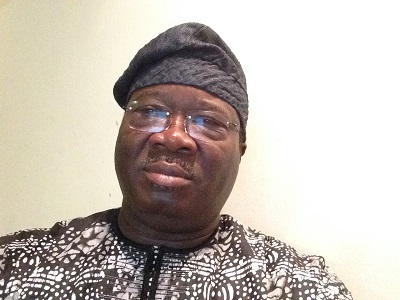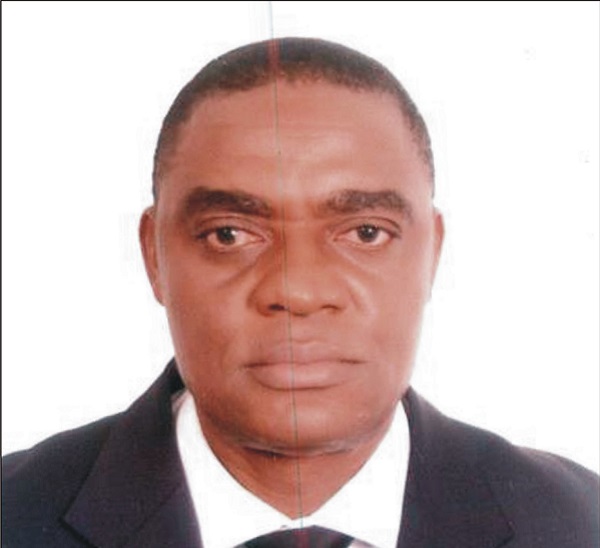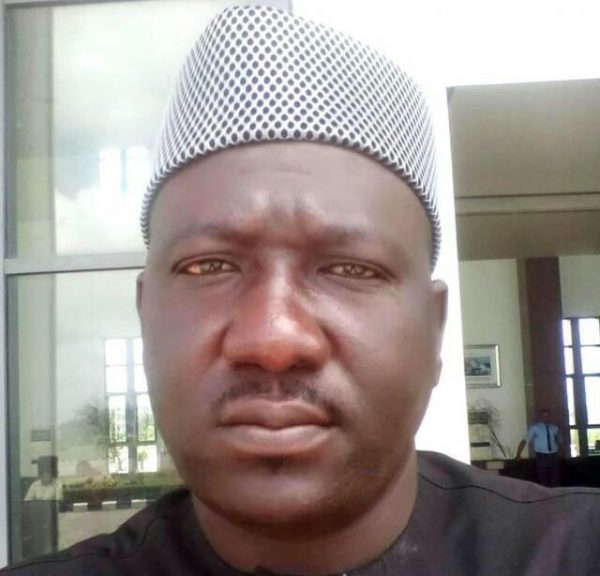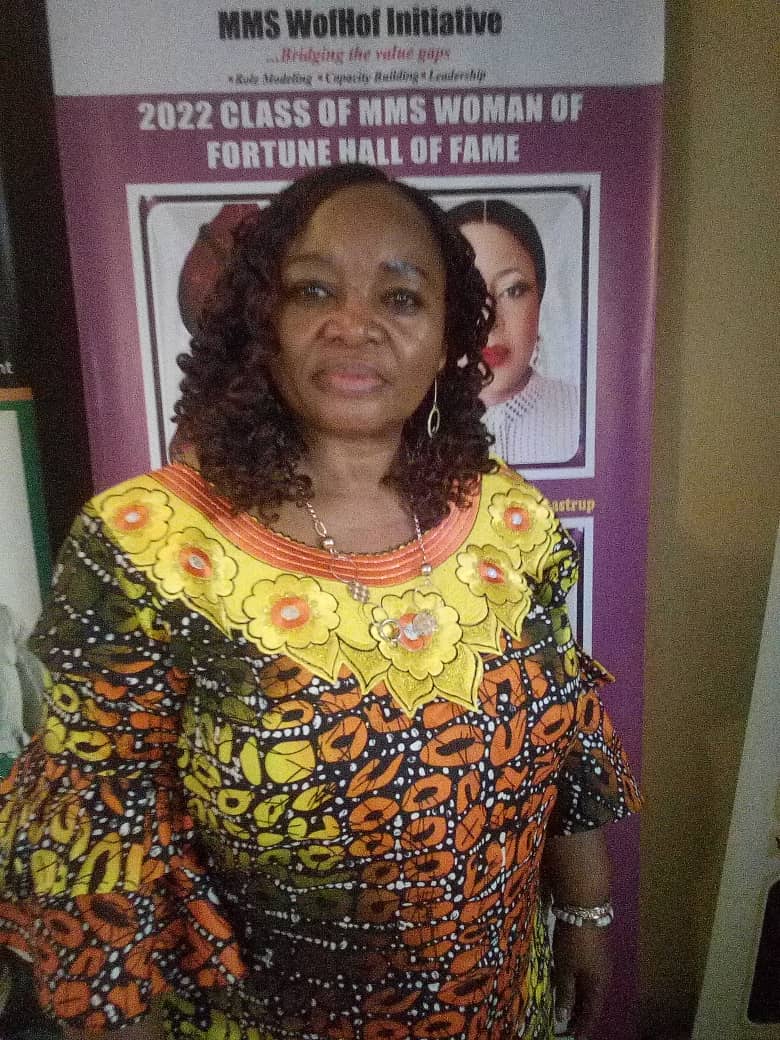How NPA, NIMASA, Customs Frustrate Automated Port Operations – Russo

By Kenneth Jukpor
Mr. Ascanio Russo is the Managing Director of Ports and Terminal Multipurpose Limited (PTML) and Grimaldi shipping agency in Nigeria. In this interview with MMS Plus newspaper he speaks on several pertinent issues hindering port operations in Nigeria while narrating the strides at PTML.
Enjoy it:
Nigerian Shippers’ Council (NSC) earlier gave a good commendation as regards PTML rating 90% for automated services, nevertheless, there are some impediments in the port community system and operations, can you expatiate them?
We are very happy with the visit of the Executive Secretary of NSC and we are very proud of what we have achieved so far. We are also very glad that NSC rated our terminal and our shipping agency as the most advanced in terms of digitalization in the industry. I’m glad that he brought this issue on the agenda because in the past there wasn’t much talk about digitalization, but this is something we have invested a lot in the last 10 years. So, I’m very glad that he is pushing this issue of digitalization of ports on the agenda.
I’m also excited about the fact that he mentioned the multimodal system of operations. This is something that at Grimaldi we strongly believe in. We have been doing a multimodal transport approach for over 10 years with our barges and offdock terminal in Mile 2. When we started barge operations on the Kirikiri water channel it was a novel idea but today the Kirikiri channel is as busy as the Apapa port access roads. I’m happy that a very relevant agency like the NSC is pushing all these on the table, because these are very critical issues.
We want to make this industry better. There is no doubt that we need to invest more in technology and we need to invest in other means of transport like barging. In Lagos for example, we are blessed with the water channels, we should really take full advantage of this. We have been investing a lot into this, we have been expanding and we really support these drives from the NSC. Of course, the challenges are still there.
Another item which we discussed was 24 hours operation, we are already working 24 hours, we receive vessels all the time. We are ready to deliver cargo even during the night. The challenge is security. We need to address the issue of security, and we need to address the issue of congestion.
On Security, what do you mean by that?
Freight forwarding agents are not comfortable to work during the night because they don’t feel safe. The same thing goes for Custom officers and we really cannot blame them. The area where we operate can be volatile, and of course no one wants to stay late at night. If they know that when they leave, they may be attacked by armed robbers or any other threat which may arise, they wouldn’t come out at night. So from our side we are open.
We’re working 24/7, we are fully digitalized. We have digitalized every aspect of the business that could have been digital but we have challenges when certain stakeholders with whom we have to work with aren’t digitalized. From the arrival of the vessel to the delivery of the cargoes, our clients can do everything online. They don’t need to come to the office or the port and it’s not because I don’t like to interact with my clients, but my dream is that one day I will come to the office and not see a crowd around the port. I hope that before leaving Nigeria I would have that experience of a very quiet area where everything works smoothly and everything is done online.
To give some hints on what we have been doing; before the arrival of the vessel, we publish online the position of the vessel in real-time. Everyone is able to assess the position of their cargoes and we transmit to all the regulatory authorities that can receive it. Prior to the arrival of the vessel, an importer can process his invoice online and he can make payment online using a number of payment platforms via e-banking, ATMs and other options. There is no manual process for all these and nobody physically checks your payment because it goes directly to our database and the cargoes are unlocked as soon as Customs clear them. All our clients are electronically connected to our database and people who intend to access this terminal have to use a biometric card. So, we know exactly who we are dealing with because we do our due diligence. Like the banks, we do the KYC (know your customer).
Another issue at the port is the refund of container deposits, how do you handle that?
On the issue of container deposit refund, this is also done electronically. You don’t need to come to PTML to present any document for that because all the necessary documents are on our database. We make payments directly into the clients account.
We have also been helping the industry by loading empty containers which have not been discharged by our main shipping line. For every one container which has been brought in PTML at least two containers have been taken out. So we are part of the solution to the problem. We also assist other terminals to take out their empties.
At PTML, the management has an application that enables us to see details as they happen. We can see the vessels arriving, vessels already at the ports, cargoes discharged, etc. We can see the information of every vessel just by clicking it. We can tell the time it arrived, cargoes discharged, when the pilot went onboard or left the vessels. Right now, we have delivered 122 cars and 23 trucks today. If I check in five minutes the numbers would have changed.
Talking about solutions to the port sector woes, there is the Ports Community System and the National Single Window but the industry hasn’t really evolved with these. What are the challenges?
I think that we are on the right path with these initiatives, but it will take some time. The system is already digitalized. We are already interacting with certain agencies digitally. Unfortunately, not everyone is on this platform. I know it’s not something which you can do overnight, it will take time. I also know that it is the intention of all the agencies including Nigeria Port Authority (NPA), Nigerian Maritime Administration and Safety Agency (NIMASA) and Customs to be fully automated.
On this platform, we are also aware of the challenges because we’re talking about agencies under different Ministries to integrate into a single platform. We are aware it takes time, however, from our side we are ready. Whenever there is an opportunity we will all be connected. That’s why we are already integrated with all the agencies and with all the platforms which are operating digitally. We are connected digitally to the banks, Customs, the electronic truck call-up system for traffic management introduced by NPA and Lagos state government. We’re already operating seamlessly and digitally, and we are really looking forward to when everyone will be on the same platform and where everything will flow smoothly through the digital ways.
Manifest transmission is an issue your highlighted earlier, can you explain the problem?
We transmit manifests to all the agencies electronically but NIMASA isn’t ready yet for online platforms. They still demand the manual one, but they have assured that in this month (June), they would begin acceptance of online manifests. NPA is also collecting manual manifests despite having an online platform since three years ago. They insist on the manual manifests as well as the online version. We also submit manual manifest to Nigeria Customs Service (NCS). The challenge is that we are printing more than 1000 papers for each manifest and we submit 11 manifests which translates to 11,000 papers for each vessel. This is a major challenge for us.
On the aspect of 24/7 port operations and cargo delivery; it wouldn’t work until banks can receive Customs duty payments online seamlessly. Besides GTbank, no other bank can do an automatic payment of duties. So, after the banks close on Friday, people can’t make customs duty payment.
About the 50 percent increase in tariff, has it taken effect?
We have decided to suspend the increase which was supposed to take effect from the 1st of June. However, this is something which we deem necessary. We all know the inflation in the country despite the kind of investment which we have made over the years. For almost 10 years now, we have never increased our pricing, yet, we have always been offering the same very high level of service in PTML. There is no congestion, there is no delay, you can take your container out without wasting any time and you can do everything online. Of course, some of these requires big investment.
We are in stage where keeping the same tariff for the last 10 years isn’t sustainable anymore. At the markets, you will see prices of items going up every day but we have not changed our price for so many years. This year alone, we have given increase in salary for our staff by over 15% and this is something we have been doing for the last 10 years. So you can imagine in real terms, what we are charging now, it’s probably 20% of what we were charging 10 years ago.
I’m happy to say that most of our clients are in support of this, because they understand the situation. Anyone who knows the business and the situation in the country understands that there is a need for an increase.
The feedback we got from our clients is very positive. They know that we offer a good service. They also know that when you get something you’re supposed also to pay for what you’re getting.
For how long are you suspending this increment?
Well, we don’t have a date yet but we are still convinced that it is something we need to do. We are still having some further discussions internally and with the stakeholders. But eventually, with the right support from all parties, we will implement it.
The Executive Secretary of NSC said that an increase in tariff should reflect services rendered. So, how much percent increase would suffice today?
Well, we will we are finalizing these things. So, this is not something I want to discuss publicly at the moment.







